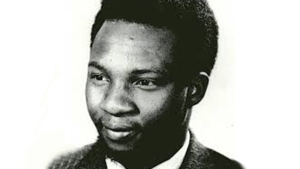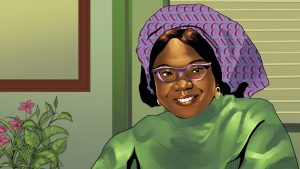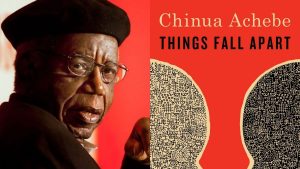Prolific Nigerian writer Cyprian Ekwensi was instrumental in the growth of African literature, especially in capturing metropolitan life and the complexity of contemporary African culture. Born in Minna, Nigeria, on September 26, 1921, Ekwensi’s narrative caught the vitality, difficulties, and paradoxes of postcolonial African city life. Through his works for children, short tales, and novels, Ekwensi vividly captured the realities of common people negotiating the fast-changing terrain of 20th-century Nigeria.
Who Was Cyprian Ekwensi?
Cyprian Ekwensi broadcast, worked as a pharmacist and wrote as well. After attending Yaba College of Technology, he then worked on a degree in pharmacy at the University of London. His job consisted of directing information for Nigeria’s federal government and broadcasting for the Nigerian Broadcasting Corporation. Ekwensi remained a committed writer despite his professional obligations, turning out many pieces with an ongoing impact on African literature.
Writing by Ekwensi is renowned for emphasizing the life of common Nigerians, especially in metropolitan environments. One of the first African authors to examine the complexity of metropolitan life, he depicted both its appeal and its hazards. His works often explored themes of love, treachery, survival, and the moral conundrums people in a fast-modernizing society find. The work of Ekwensi is distinguished by its realistic depiction of Nigerian life, easy approach, and interesting narrative.

Jagua Nana: Cyprian Ekwensi’s Most Famous Work
Of all Ekwensi’s many works, Jagua Nana (1961) is among the most well-known and powerful ones. Bold and innovative investigation of urban life in Lagos, the busy city of Nigeria, Jagua Nana is The book centers on Jagua Nana, an aged yet elegant prostitute striving to keep her freedom and savor the pleasures of city living. By means of Jagua’s experiences, Ekwensi explores the complexity of contemporary African culture and presents a frank and uncompromising view on problems like morality, gender, and class.
Plot Overview
Jagua Nana’s heroine, Jagua, Nancy’s actual name is Nancy, is a very beautiful and charismatic lady. She is still a well-liked person in Lagos’s active nightlife despite her age; she is recognized for her taste in luxury and her capacity to draw powerful and rich men. Underneath her glitzy façade, nevertheless, Jagua is a multifarious person struggling with loneliness, guilt, and the need for a more meaningful existence.
The book tracks Jagua’s connections with many men, including Chief Ofubara, an elderly, rich man who presents her with a life of stability, and Freddie, a young man she helps financially. But when Jagua is caught in political intrigue and has to face the terrible consequences of her decisions, her life changes. Jagua’s narrative becomes a potent reflection on the difficulties experienced by women in metropolitan Africa as she negotiates age, love, and survival in a fast changing metropolis.
Themes and Social Commentary
Notable for its investigation of postcolonial Nigeria’s gender, power, and social change issues is Jagua Nana. By means of Jagua, Ekwensi explores the duties and expectations imposed on women in a patriarchal culture. Jagua challenges the social mores of the period by her independence and rejection to fit conventional gender roles, therefore generating a fascinating and divisive character.
The book also tackles the moral complexity of city living, where people often have to make tough decisions to live. Lagos, according to Ekwensi, is a city of opposites where virtue and vice dwell in a delicate balance alongside prosperity and poverty, tradition and modernism, and vice versa. Jagua’s contacts with the many people living in the city expose the conflicts between the old and the modern as well as the effects of urbanization on Nigerian society.
One of the most remarkable aspects of the book is how imperfect but sympathetic Ekwensi presents Jagua. Readers may relate to Jagua’s challenges with her identity, history, and future, therefore rendering her narrative both relevant and moving. By means of Jagua’s voyage, Ekwensi urges readers to reflect on the larger social and cultural transformations occurring in Nigeria as well as the difficulties experienced by those negotiating these changes.

Contribution to African Culture and Literature
The great contribution Cyprian Ekwensi has made to African literature and culture Offering readers a window into the reality of living in postcolonial African cities, he was among the first African authors to really capture metropolitan life in all its complexity. Ekwensi’s writings are recognized for introducing African literature—both within Nigeria and abroad—as well as their rich depiction of African life and culture to a larger audience. His tales are still honored for this quality.
As Ekwensi questioned the dominant literary emphasis on rural life and traditional practices, her attention on common people and their experiences in the city was revolutionary. Ekwensi underlined the dynamic and changing character of African cultures and the ways people adapt to changing conditions by moving the story to the metropolitan setting.
Apart from his books, Ekwensi produced several short tales, children’s books, and nonfiction pieces. Often, moral teachings, comedy, and a strong awareness of human nature permeated his tales. Ekwensi was a revered and powerful person in African literature as he could capture the core of African life in all its variety.
Conclusion: Why Cyprian Ekwensi and Jagua Nana Matter
Remarkably yet current and potent, Cyprian Ekwensi’s Jagua Nana provides readers with a glimpse into the complexity of life in postcolonial Nigeria. By means of Jagua Nana, Ekwensi examines issues of gender, power, and morality, therefore offering a complex and convincing portrait of metropolitan African society.
For young readers, Jagua Nana is an invitation to study the rich fabric of African culture and the difficulties encountered by people in a fast changing environment, not just a tale. Readers still find great inspiration and resonance in Cyprian Ekwensi’s work, so he is a major player in the annals of African literature and a writer whose legacy will last for next generations.
Please read all our stories on African Literature here




